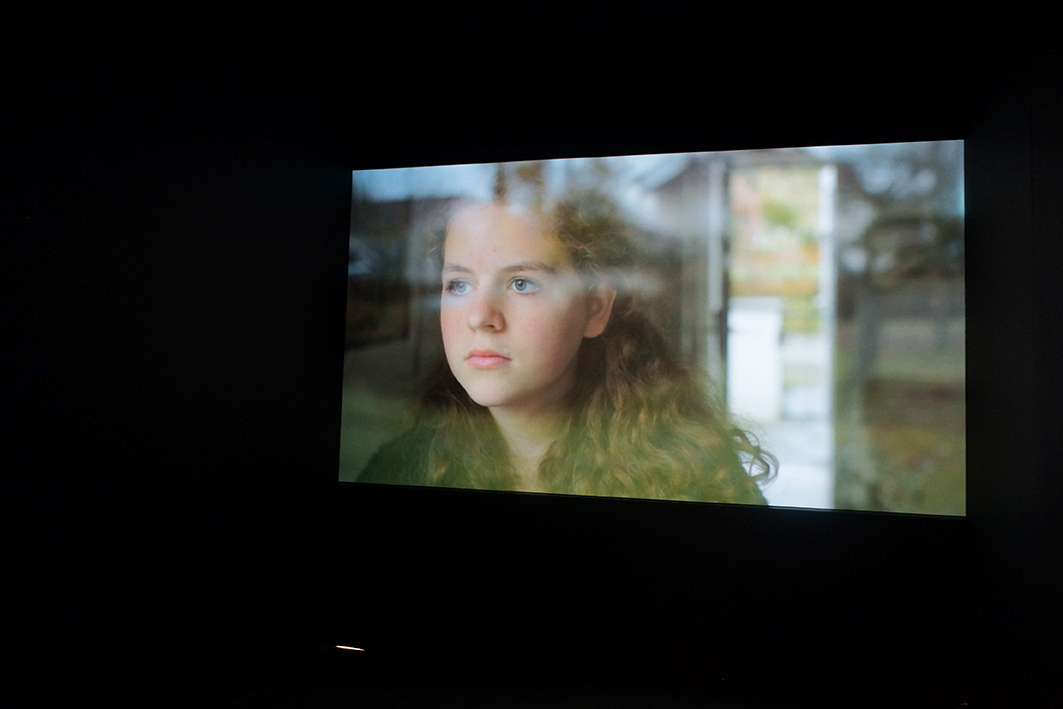‹Swiss Art Awards›
Bundesamt für Kultur / Federal Office of Culture 2012
Die ‹Swiss Art Awards› gehören zu den ältesten Kunstwettbewerben der Welt. Seit 1899 organisiert das Bundesamt für Kultur jährlich eine Ausstellung zur zeitgenössischen Kunst und Architektur in der Schweiz. Sie gilt als renommierte Referenz gleichermassen für professionelle Kulturschaffende wie für Sammler, Kuratoren, Kulturförderer und Kunstbegeisterte.
The “Swiss Art Competition”, held annually since 1899, is the world’s oldest art award. The accompanying Swiss Art Awards exhibition, which is organized by the Swiss Federal Office of Culture, offers an insight into current art and architecture in Switzerland and is a valuable reference for art professionals as well as art collectors, curators, arts supporters and art lovers.
Mikado
2010, Single-channel Film
Single-channel Film, looped 19:22 min., color, stereo sound, format 16:9, full HD projector, active speakers, BrightSign
Copies: 3 + 1 AP
Copy no. 1: Collection of Kunstkredit Baselland
Copy no. 2: Collection of Kunstkredit Basel-Stadt

‹Mikado› exhibition stage on the occasion of ‹Swiss Art Awards 2012› accompanying ‹Art Basel› (Photography: Serge Hasenböhler)

“The eyes of stuffed hunting trophies are not the only ones observing the scene.” (Eva Scharrer, agent documenta 13/Dok-Fest Kassel 2010)


Documentation room
«In Bettina Grossenbachers Film ‹Mikado› liegt die Vermutung nahe, dass die Protagonistin, ein junges Mädchen von etwa 13 Jahren, beim Betreten eines Hauses, das zwar menschenleer, aber voller Relikte und Erinnerungen aus vergangenen Zeiten ist, nicht nur eine Reise in die eigene Vergangenheit unternimmt, sondern auch in ihr Unbewusstes vordringt, offensichtlich nach einer Antwort suchend. [...] Schon bald wird klar, dass das Mädchen nicht allein ist. Hinter den verschlossenen Vorhängen ist ein Schatten zu erkennen, später sieht man durch die Fensterscheiben einen Mann mittleren Alters im Garten. Bald taucht er auch im Innern auf, wird ein Bad nehmen. Zwischen den beiden besteht offensichtlich eine enge Beziehung, deren genaue Natur nicht mitgeteilt wird – ausser, dass sie ein unausgesprochenes Geheimnis zu teilen scheinen. Es entspinnt sich ein Dialog, der Fährten legt, die immer wieder die Richtung ändern. Jedes Detail der Filmhandlung ist sorgfältig choreografiert, bestimmte Motive kehren immer wieder: Spiegelungen, Reflexionen, Vorhänge von unterschiedlicher Transparenz, Einblicke von innen nach aussen und umgekehrt. Das Haus wird zum Spiegel innerer Befindlichkeiten. [...] Bettina Grossenbacher, die Regie führte und auch das Skript schrieb, hat früher selbst als Schauspielerin gearbeitet. Der Bezug zum Theater ist auch in ihren filmischen und fotografischen Arbeiten präsent, insbesondere hier. [...] Ähnlich, wie bei Stücken Samuel Becketts wird das Bedürfnis des Zuschauers, zu verstehen, bewusst untergraben, auch die Befriedigung voyeuristischer Lust am familiären Drama erfüllt sich nicht. Die Künstlerin verführt uns, die Sinnsuche aufzugeben und uns von der Kraft der Bilder und der Sprache tragen zu lassen.» Eva Scharrer, Agentin Documenta 13 (Ausstellungskatalog ‹Monitoring›, Dok-Fest Kassel 2010)
“The house as a reference to the human soul, its rooms symbolizing various characteristics and experiences of its inhabitants – these are common images in psychoanalysis and the interpretation of dreams. It seems that in Bettina Grossenbacher’s film ‘Mikado’ the protagonist, a young girl of about 13 years, not only takes a journey into her past by entering a deserted house full of relicts and memories of bygone times but also enters her unconscious in the search of answers. […] Soon it becomes obvious that the girl is not alone. Later a middle-aged man can be seen in the garden through the windows. Yet soon he appears inside the house, taking a bath. Apparently there seems to be a close relationship between the two but its specific nature is not communicated apart from them seemingly sharing an untold secret. A dialogue is spun that opens tracks which constantly change. Every detail of the film’s plot is meticulously choreographed where certain motives return again and again: reflections, curtains of varying transparency, insights from the inside to the outside and vice versa. The house turns into a mirror of inner sensitivities. […] Bettina Grossenbacher worked as an actor before writing script and directing. The connection to the theatre is present in her films as well as in her photography work. […] Similar to plays by Samuel Beckett, the desire of the audience ‘to understand’ is undermined deliberately and even the satisfaction of voyeuristic pleasure of familiar drama does not happen either. The artist wants to seduce us to give up the search for meaning and instead to be carried away by the power of the images and language.” Eva Scharrer, agent documenta 13 (exhibition catalogue “Monitoring”, Dok-Fest Kassel 2010)
Links:
→ Mikado (Single-channel film)
→ Swiss Art Awards 2012: The winners
→ Artlog Swiss Art Awards 2012
→ Dotmov Collection of New Media Baselland (trailer)
→ Art collection Kunstkredit Basel-Stadt (online)
Downloads:
→ Jurybericht Swiss Art Awards 2012
→ Tageswoche
→ Badische Zeitung
→ Eva Scharrer (agent Documenta 13/Dok-Fest Kassel)
→ Jörg van den Berg: ‹Das Kunstwerk und seine Gesellschaft› (excerpt)